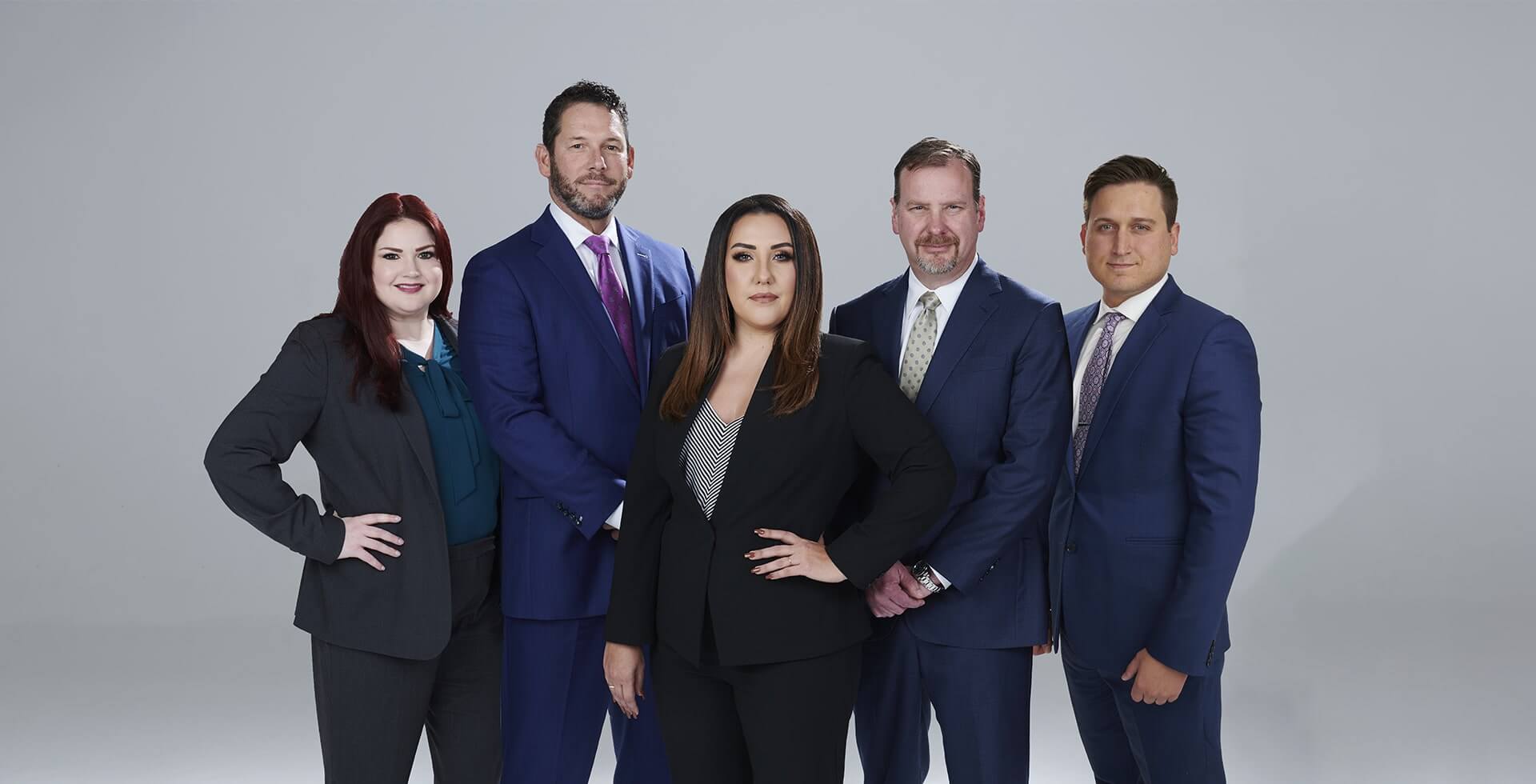
Although the U.S. legal system is vast, with tens of thousands of attorneys performing various legal work from writing contracts, to transacting business, and helping with estate planning, one of the most common types of attorneys is the personal injury attorney.
Although a person may experience a personal injury while engaging in society, personal injuries do not exist in a vacuum. Therefore, every personal injury case must first meet the test prescribed to the personal injury theory the injured party is asserting on another.
For example, in a typical car accident case, one party cannot simply assert that they are entitled to compensation because they were rear-ended by another car. Instead, they must establish the elements of negligence when pursuing their case. To prove negligence, the driver of the car that was rear-ended must show that the other party (the defendant):
).
Without establishing the elements of negligence, an injured party will be unable to prove their case and would not be entitled to compensation for their injuries.
Despite being one of the most common torts, negligence is not the only form of personal injury. Other personal injuries claims can include:
To become a personal injury attorney in Oklahoma, a person must first complete a four-year degree program and graduate law school. Typically, most law school programs last three years and include a standard curriculum of core legal subjects, including a certain number of credit hours devoted to tort law and various electives.
A student must take an ethics exam called the Multistate Professional responsibility Exam (MPRE) during law school, which tests students on the nationally recognized code of legal ethics: the Model Rules of Professional Conduct. In addition, most states, including Oklahoma, require students and graduates to submit information regarding their background to demonstrate compliance with ethics rules. Those not in compliance risk ineligibility to sit for the bar exam.
After graduating and earning a Juris Doctorate (J.D.), an Oklahoma lawyer must then take the Uniform Bar Exam (UBE) to become an attorney. The UBE consists of testing test takers on several topic areas, including tort law, where a lawyer must earn enough points to pass to acquire their license. Lastly, the attorney must be sworn in by a judicial officer (a judge) and swear to uphold the Constitution of the United States and Oklahoma state constitution.
Unlike popular depictions in media, many personal injury cases rarely see the inside of the courtroom.
Instead, skilled personal injury attorneys work to ensure positive outcomes for clients that have suffered injuries by providing a host of services that fit the circumstances of their case.
An experienced attorney will always thoroughly investigate an injury by interviewing the injured party, talking with interested parties, and reviewing relevant documentation. Before filing a lawsuit or reaching out to adverse parties, an attorney will always review relevant evidence and determine the viability of a claim to ensure their client is represented correctly.
Many personal injury cases start by sending the adverse party a simple demand laying out the relevant facts of a case and demanding that compensation be paid to the injured client. Sometimes, a demand is all that the injured party needs to collect a reasonable settlement for their case. However, the other party may refute allegations of wrongdoing or ignore the letter entirely.
Frequently, personal injury cases are handled by each party’s insurance company. An insurance company is tasked with paying claims rather than having the party that committed the injury compensate the injured party. However, insurance companies will often fight tooth and nail to ensure any issues with an injured party’s claims are exploited to absolve the insurance company from paying. An experienced personal injury attorney can ensure an injured party is not strong-armed into releasing the other party from liability or taking a sum less than their injury is reasonably worth.
A personal injury attorney will always try to settle outstanding claims before trying a case in court. Trials can be risky and unpredictable for both parties, not to mention incredibly expensive and time-consuming.
Therefore, a personal injury will always seek a fair and equitable settlement that suits the client’s best interests before going to trial.
A personal injury claim allows an injured party to seek compensation for all actual damage inflicted by the other party’s actions. Compensation can include funds for property damage, medical bills, loss of wages, loss of consortium (damage to existing familial or affectionate relationships), a reduction of one’s quality of life, mental distress, and pain and suffering.
In some negligence cases, a court of law may assign liability to more than one party, including actual negligence caused by the injured party. This may decrease the amount of damages an injured party may receive based on a trier of fact’s (judge or jury) assignment of liability. For example, an injured party that was 30% at-fault for a car accident will only be able to receive 70% of the damages for the injury.

When injury victims need a law firm with a reputation for excellence, turn to Graves McLain Injury Lawyers. We are a top-rated personal injury firm determined to be the best. With decades of award-winning representation, our clients recover the compensation they need to put their lives back together.